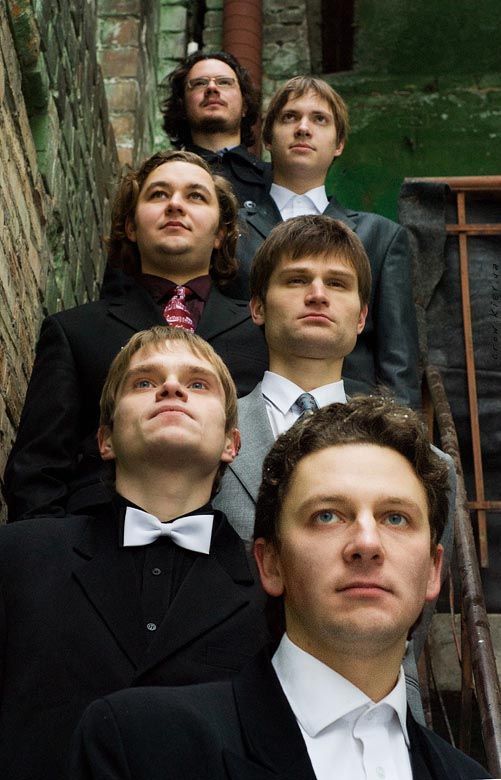The Ukrainian tune of the “Warsaw Autumn”
“Images of the recent tragic events have been incidentally actualized by composers in music,” says expert
During almost 60 years of the “Warsaw Autumn,” one of the most reputable forums of modern academic music in the world, the Ukrainian school of composers was represented by six names: Valentyn Sylvestrov, Myroslav Skoryk, Yevhen Stankovych, Oleksandr Shchetynsky, Bohdan Sehin, and Liubava Sydorenko. This is a fact of the festival’s statistics, and it would be easy and hard at the same time to answer why these maestros, or why only these names. However, it is significant that Sylvestrov holds leadership in the number of performed works. Starting from 1983, only 7 of his works have been played (which means, there were even less works by his colleagues performed). In particular, The Fifth Symphony was performed by the Symphony Orchestra of the Kyiv Opera House, conducted by Virko Balei. Back then, according to reviews of Polish critics, this opus was received rather coolly. This music is too lyrical and romantic in the context of such festival, where the main content of the program is made up by radical avant-garde compositions. Besides, “another” Sylvestrov was known there (for his early dodecaphonic works), and obviously, the change in music language was interpreted as deviation and treason.
In general, with more than 1,200 works by composers from all over the world played during the entire history of the festival, the percentage of Ukrainian music represented there is rather insignificant.
The project “Ukraine – Poland” was not part of the “Warsaw Autumn,” but related to it, falling under a category of the so-called complementary concerts. It means that the program of such concerts is a private offer, not a result of work of a special festival commission. That is why themes of such concerts sometimes deviate from the main theme of the festival, intellectual music (very traditional works of romantic aesthetics were played), which gave the audience an opportunity to catch their breath. But the mentioned Ukrainian-Polish festival fitted the festival’s format, in a sense. Besides, the place where the festival is held, the Royal Castle, bears a symbolic meaning: from time to time it hosts events dedicated to Ukrainian culture.
The opening speeches were made by Roman Rewakowicz, a Polish conductor and a main promoter of Ukrainian music in Poland, and Bohdan Sehin, initiator of the project, director of the Nostri Temporis ensemble. They spoke about the national compound in contemporary Ukrainian music. However, today this matter is rather rhetorical, because music globalized that much that the national manifestations disappeared, or at least lost its relevance. What does this mean? How can national identity be conveyed through music – by lyrics of a folk song or the rhythm of kolomyika? This is so trivial. But everyone agreed that the national Ukrainian compound is still present in music, not literally on the level of melody, but on the level of the specific sentimental intonation.
This very intonation was present in the first composition, I Have Lost My Euridice by Oleksii Shmurak. The four-piece work is permeated with some graphic, but intentionally indistinct waltz mood: it changes from a painful mirage, a phantom, like in Tchaikovsky’s works, to a “limping” rhythm, and then, as if it has been transformed into a march, it reminds a funeral procession because of the timbre of wind instruments. Yes, it possesses certain sentimentality, but not of Webern’s kind, which takes everything away from the audience without granting anything in return. It is conceptual sentimentality, a game which provokes a dialog. Shmurak works well with details, that is why the audience is interested in every piece of the music fabric.
Talos by Bohdan Sehin is of a different kind. Dynamic, vivid, very integral, it can even be said, “monolithic” in form, this music is harsh and uncompromising in its own way (this effect is created by sharp, abrupt, methodically repeated intonations of the strings). In short, the listener feels very much taken aback.
As for the opuses by two Polish authors, Karol Nepelski and Slawomir Kupczak, the work by the latter seemed to be more interesting, even though it is an involuntary subjective impression. This play for a chamber ensemble had a “symphonic” sound effect, besides, the author presented an authentic work with rhythm: the image of time shifted to the foreground, a specific rhythm, in which several clocks seem to tick asynchronously.
A lot of respect goes out to Nostri Temporis ensemble and the Polish ensemble Neoquartet, and also to conductor Grzegorz Wierus, all of them presenting a rather high professional level of contemporary music performance.
As the concert host and music critic Monika Pasiecznik noted, this is not a political project. However, images and motifs of the recent tragic events, unintentionally actualized by composers in music (by the way, this was a premiere for all the four plays written this year), hung in the air.






